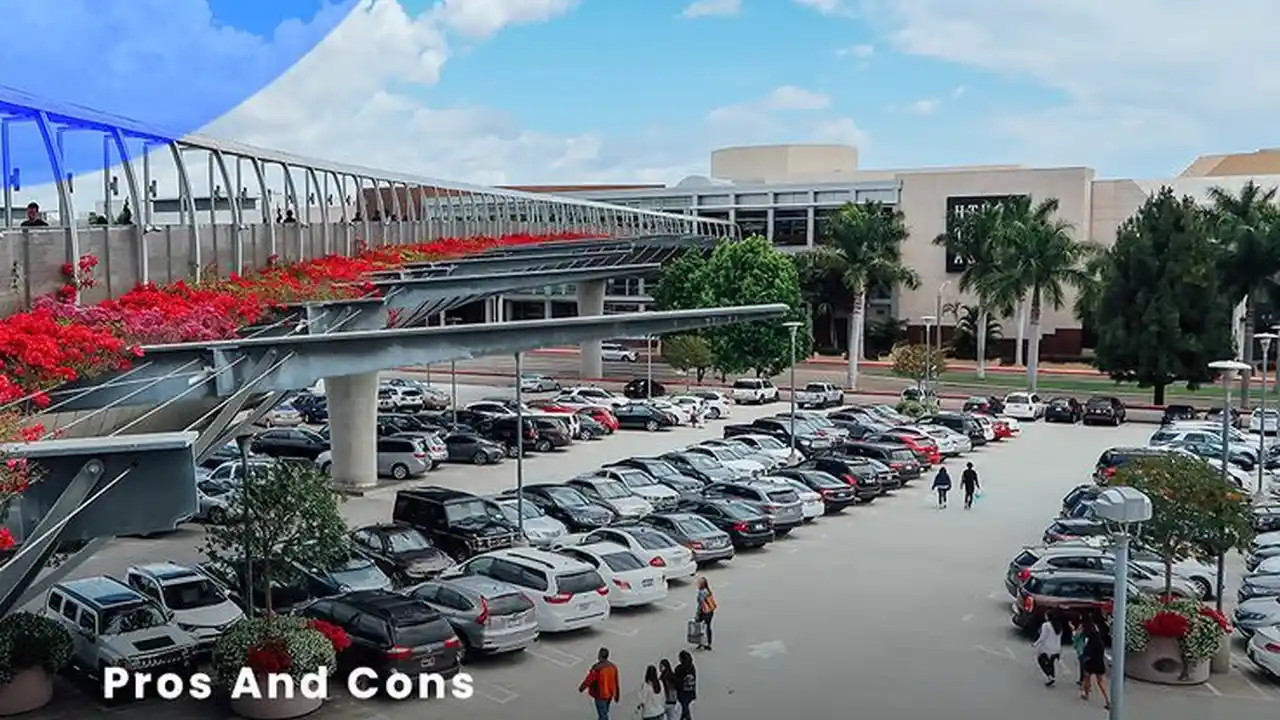The Pros and Cons of Parking Assist Systems

Okay, so you're thinking about getting a parking assist system? Smart move! Parallel parking can be a nightmare, and those tight spots in the supermarket parking lot? Forget about it! But are these systems all they're cracked up to be? Let's dive into the good, the bad, and everything in between.
Parking Assist Systems What Are They and How Do They Work?
Basically, parking assist systems use sensors – usually ultrasonic or radar – to detect objects around your car. These sensors feed information to a computer that calculates the best way to maneuver into a parking space. Some systems just give you audible or visual cues, while others actually steer the car for you. It's like having a co-pilot for parking!
The Pros of Parking Assist Technologies Convenience and Ease of Use
Let's be honest, the biggest advantage is convenience. These systems take the stress out of parking, especially in tight spots. They can help you avoid dents and scratches, which saves you money and embarrassment in the long run. Plus, they can be a lifesaver for drivers who aren't confident in their parking skills, or for older drivers who may have limited mobility.
Enhanced Safety Features of Parking Assist Systems
Parking assist systems aren't just about convenience; they also enhance safety. By detecting objects that might be difficult to see, like small children or low-lying obstacles, they can help prevent accidents. Many systems also include features like rear cross-traffic alert, which warns you of approaching vehicles when you're backing out of a parking space.
The Cons of Parking Assist Systems Limitations and Potential Drawbacks
Of course, no technology is perfect. Parking assist systems have limitations. They may not work well in all weather conditions, like heavy rain or snow. They can also be confused by certain objects, like fences or bushes. And, sometimes, they just plain get it wrong! Relying too heavily on these systems can lead to complacency and, ultimately, accidents.
Cost Considerations of Parking Assist Systems Initial Investment and Maintenance
Let's talk money. Parking assist systems can add a significant cost to the price of a new car. The more advanced the system, the more you'll pay. And while these systems are generally reliable, they can require maintenance and repairs. Sensors can be damaged, and software can malfunction. So, you need to factor in the potential for ongoing costs.
Specific Product Recommendations and Reviews for Optimal Parking Assistance
Alright, let's get down to brass tacks. Here are a few parking assist systems worth checking out:
Bosch Parking Pilot A Reliable and Versatile Option
Bosch is a big name in automotive technology, and their Parking Pilot system is a solid choice. It offers both parallel and perpendicular parking assistance, and it's known for its reliability and accuracy. It's a popular choice for many car manufacturers, so you'll likely find it as an option on a wide range of vehicles. The ultrasonic sensors are pretty robust, handling most weather conditions well. You can generally find this integrated into vehicles ranging from $25,000 to $60,000, depending on the make and model. This system excels in urban environments where parking spaces are tight and plentiful.
Valeo Park4U A Budget-Friendly Alternative
If you're looking for a more affordable option, Valeo Park4U is worth considering. It's a retrofit system, meaning you can install it on a car that doesn't already have parking assist. While it might not be as seamless as a factory-installed system, it can still provide valuable assistance. Expect to pay around $300-$500 for the kit and installation. This is ideal for older vehicles or those that didn't originally come with advanced parking features. It works well in suburban environments with less dense parking situations.
Continental Easy Parking System Advanced Features and Integration
Continental's Easy Parking System is a more advanced option that offers a range of features, including remote parking and automated parking. It uses a combination of sensors and cameras to provide a 360-degree view of your surroundings. This system is typically found in higher-end vehicles and can add several thousand dollars to the price tag. This is best suited for luxury vehicles and drivers who want the most advanced parking technology available. It excels in complex parking scenarios, such as multi-story car parks.
Comparing Different Parking Assist Systems Features and Performance
So, how do these systems stack up against each other? Bosch Parking Pilot is known for its reliability and ease of use. Valeo Park4U is a good option for those on a budget. Continental Easy Parking System offers the most advanced features, but it's also the most expensive. Consider your needs and budget when making your decision.
Here's a quick comparison table:
| System | Features | Price Range | Best For |
|---|---|---|---|
| Bosch Parking Pilot | Parallel and perpendicular parking assist | Integrated into vehicles $25,000 - $60,000 | Reliable, urban environments |
| Valeo Park4U | Retrofit parking assist | $300 - $500 (kit and installation) | Budget-friendly, older vehicles |
| Continental Easy Parking System | Remote parking, automated parking, 360-degree view | Adds thousands to vehicle price | Luxury vehicles, complex parking scenarios |
Understanding the Pricing of Parking Assist Systems Factors and Considerations
The price of a parking assist system can vary widely depending on the manufacturer, the features offered, and whether it's a factory-installed or aftermarket system. Factory-installed systems are typically more expensive, but they're also more integrated and reliable. Aftermarket systems are more affordable, but they may require professional installation and may not be as seamless.
Remember to factor in the cost of maintenance and repairs when considering the overall cost of ownership. While these systems are generally reliable, they can require occasional maintenance, such as sensor replacements or software updates.
Real-World Scenarios Using Parking Assist Systems Practical Applications
Imagine this: you're trying to parallel park on a busy street, and cars are honking behind you. With a parking assist system, you can simply activate the system, follow the on-screen instructions, and let the car do the work. Or, you're backing out of a parking space in a crowded shopping mall, and you can't see if there's any traffic approaching. A rear cross-traffic alert system can warn you of approaching vehicles, preventing a potential collision.
These systems aren't just for novice drivers. Even experienced drivers can benefit from the added convenience and safety they provide.
Future Trends in Parking Assist Technologies Advancements and Innovations
The future of parking assist technology is exciting. We're seeing the development of more advanced systems that can handle even more complex parking scenarios, such as parking in multi-story car parks or navigating tight spaces in urban environments. We're also seeing the integration of artificial intelligence and machine learning, which will allow these systems to learn from their mistakes and become even more accurate and reliable. And, of course, the ultimate goal is fully autonomous parking, where you can simply drop off your car at the entrance to a parking lot and let it find its own space.
So, are parking assist systems worth it? That's a question only you can answer. But hopefully, this guide has given you a better understanding of the pros and cons, the different options available, and the factors to consider when making your decision. Happy parking!
:max_bytes(150000):strip_icc()/277019-baked-pork-chops-with-cream-of-mushroom-soup-DDMFS-beauty-4x3-BG-7505-5762b731cf30447d9cbbbbbf387beafa.jpg)






